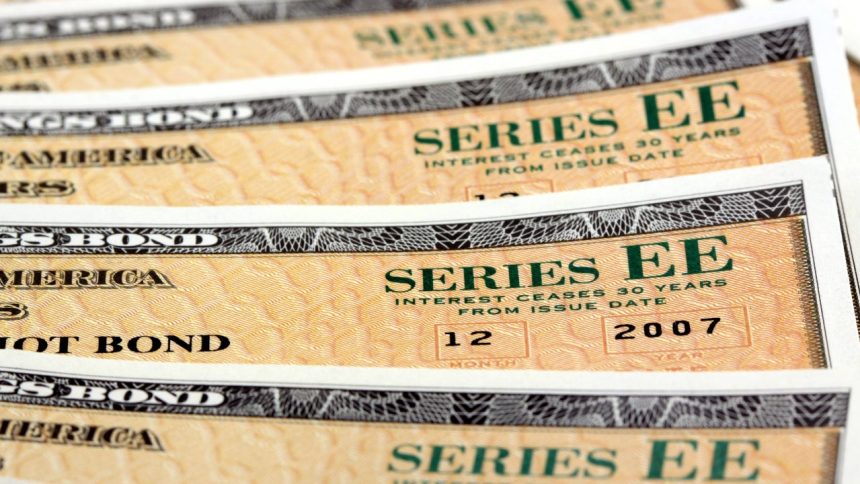Key takeaways
- You can typically cash in your savings bond at your bank, in person.
- Regardless of how much money you receive, you can cash in your childhood savings bond and reinvest it, save it, or spend it.
If you have a savings bond socked away for a while, or someone opened one up in your name, chances are it’s time to cash it in.
Old savings bonds might be ready to cash in, depending on which savings bond you have and how long it was set to earn interest. If you’re ready to cash in your old savings bond, here’s how to get started.
What type of savings bond do you have?
There are three types of savings bonds. The money in any of these bonds is exempt from state taxes, but the earned interest is taxable by the federal government.
- Series E
- If you have a Series E bond, you’re sitting on something that actually no longer exists. The government stopped issuing Series E bonds in 1980. These bonds had a 40-year maximum if issued before November 1965, and a 30-year maximum afterward. If yours was issued in 1978, for example, it would have matured in 2008.
- Series EE
- Series EE served as the replacement for the E bonds, and these earn different interest rates, depending on when it was issued. All EE bonds issued after May 2005 earn a fixed interest rate, while those issued prior to that date have variable interest rates. Like their predecessor, Series EE bonds can earn interest for up to 30 years.
- Series I
- Series I bonds are designed to protect against inflation with a combined fixed rate and a semiannual inflation rate that’s based on the consumer price index.
When is the right time to cash in savings bonds?
Before you cash in your savings bonds, here are a few key considerations.
- Watch for penalties. Series EE and Series I bonds come with one caveat: If you cash the bond in before the five-year mark, you forfeit the previous three months’ worth of interest earnings.
- Could you earn more? The bond’s rate may vary widely, depending on the type of bond and when it was purchased. For example, a Series EE bond purchased in January 2000 pays a 0.77 percent interest rate. A Series I bond purchased in the same month has much higher earning power with an interest rate of 10.64 percent and could bring in a good amount of cash if left alone for another couple of years.
- How will the money be used? If you need immediate cash to pay for unexpected expenses, that bond from your childhood can make a difference in your financial life.
Can you cash in a savings bond at any bank?
Savings bonds can generally be redeemed with the bank where you have a checking account. For example, at Bank of America, customers who have had a checking or savings account open for at least six months can easily cash in their savings bonds.
In case it’s not possible to cash in the bond with your bank, savings bonds can be redeemed directly through the Treasury Department by downloading FS Form 1522, getting the signed form certified and mailing your unsigned bonds to:
Treasury Retail Securities ServicesP.O. Box 9150Minneapolis, MN 55480-9150
Find out how much your savings bond is worth
Figuring out how much your bond is worth is easy, thanks to the Treasury Department’s handy online calculator. Go to the TreasuryDirect website and enter information about your bond — the type, the serial number and the date it was issued — to get a full rundown of its value, its year-to-date interest and its maturity date.
But if you want to keep growing that sum of money, compare your current interest rate with other investments. High-yield savings accounts, for example, offer competitive rates and offer greater flexibility.
–Freelance writer Dori Zinn updated this article. David McMillin contributed to a previous version of this article.
Read the full article here
















